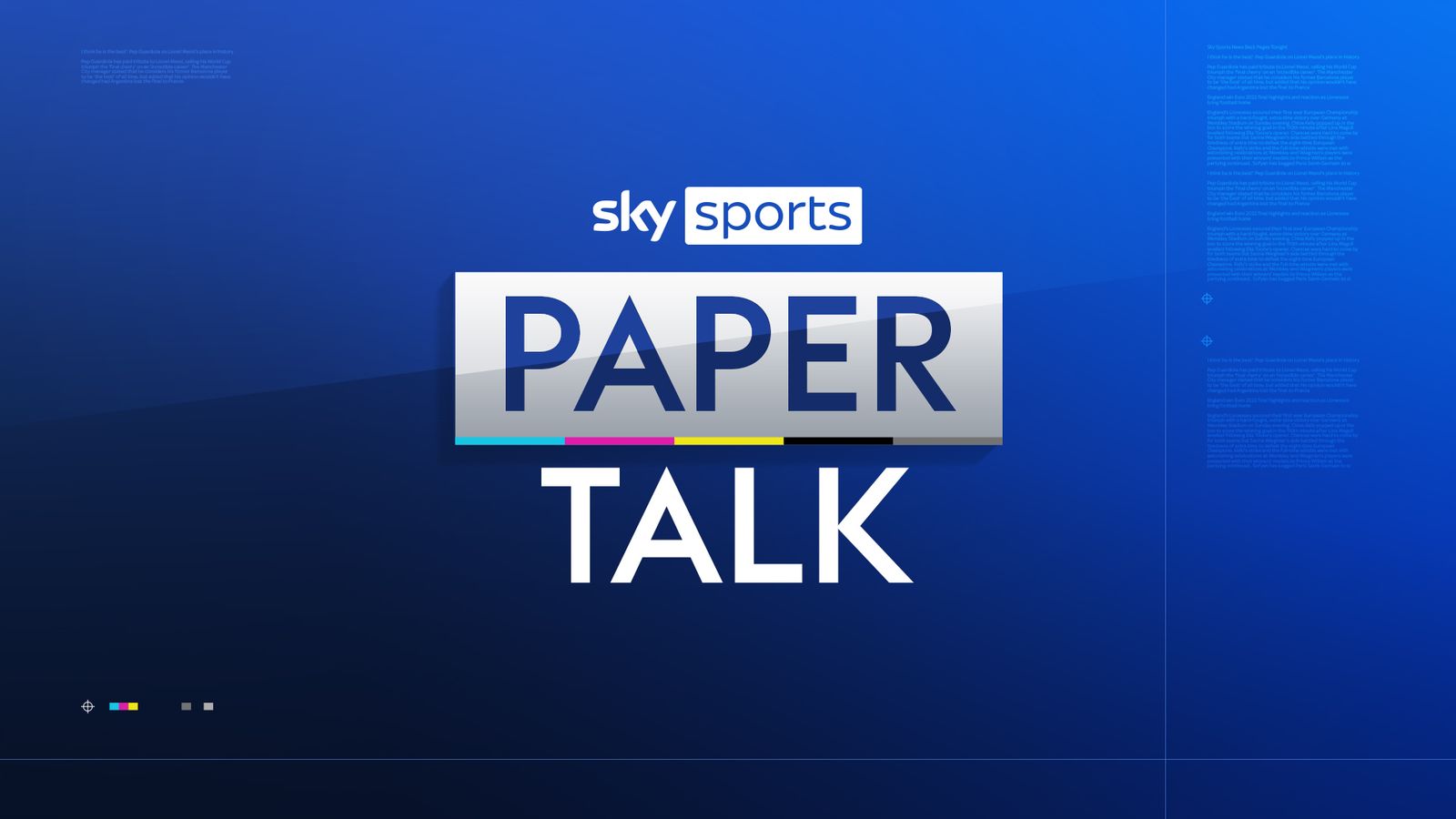Ask a question or make a comment
Russia can't take the whole of Ukraine - as this formula shows
Put simply - not within a few years.
Clarke says that's because Ukrainians are fighting back, and after what they've seen over the past three years they will not just "roll over".
"We've crossed a line in that respect," Clarke adds.
He points to an old formula that estimates a stable society needs around one in 200 of the population to be a soldier or police officer.
That jumps up to one in 20 in an unstable environment - and Russia simply doesn't have the manpower to deploy a couple of million people in Ukraine.
"They can't do it," Clarke says, adding they could take a swathe of land in this war.
But if it were to ever become a war of resistance among occupied Ukrainians against Russia, it would get "very, very vicious" on both sides.
Putin won't appear in The Hague - but that's not the point of it
"Almost certainly not," says Michael Clarke.
"The chances of Putin appearing at The Hague are very remote. That doesn't mean it's not worth doing."
The point of the International Criminal Court is for its 125 members to determine that there has been a crime and that he is a criminal who ought to answer for it, says Clarke.
"It is important to the principle of law that those indictments stand."
Has Ukraine started manufacturing its own weapons?
"They can do that as Ukraine was part of the old Soviet industrial base," explains Clarke.
"They have the knowledge to do it and the enterprises, the educated workforce. They are world leaders at drones and can produce some of the big stuff as well."
However, Kyiv still needs a "bit more time", as well as military help from the West, for it to "get through the next period".
"But even with Russia occupying 20% of Ukraine and reducing the active population to around 35 million from 44 million, it's still a big country that can do things."
Life post-Putin will likely lead to chaos in Russia
Constitutionally, Putin has arranged it so he can stay until 2036, when he'll be around 84.
He's in his 26th year in power now, but "like all dictators", he doesn't have a successor outside the family lined up.
"If Putin dropped dead tomorrow, he won't be succeeded by a nice man," Clarke says.
And there are two things to be nearly certain of - he will be a man and there is likely to be a period of chaos.
Clarke points out Russian history over the past 100 years has seen a strong leader precede "chaos" as the next in line is decided.
That was the case after Lenin and Stalin, right up to the fall of the Soviet Union.
Dictators typically keep "everyone in-fighting below you", so when they "drop dead" or have the "knife in their back", everyone fights among themselves to take over.
"You'd expect that to happen again," Clarke adds.
How could Ukraine gain an advantage in the war?
"They would need to get hold of more weapons and integrate them in a way that the Western armies would and break through," says Michael Clarke.
This is what they tried and failed to do in 2023.
"The thing that will most affect Russian thinking is losing on the battlefield."
Clarke explains this would tip the scale politically because it would make a difference to what the Russians thought they could achieve on the ground.
Why Kremlin attack would defeat objective of Ukrainians
"It's a legitimate target politically, but it's not a military target," says Clarke.
"A drone attack into Moscow would defeat the object of the Ukrainians saying that they only go for military targets."
Clarke adds that previous drone attacks on the Kremlin were "trivial in the sense they were small drones and caused a small fire".
"I still don't believe that drones came directly from Ukraine," he adds.
"I think they came from within Russia. They came from two different directions for a start. It was more like Ukrainian-encouraged opposition trying a stunt."
Asked what Ukraine could do rather than strike the Kremlin, Clarke says they should keep up attacks on nearby military sites.
"One thing they can do is attack military targets around Moscow, which leads Russia to close airports. Every time that happens, it brings home to the Russian people that these are the insolvencies of war."
Zelenskyy will be remembered as the man who refused to give up
If Zelenskyy signs a bad deal, he won't get it through Ukraine's parliament, Clarke says.
The idea has always been, he adds, that he would not survive a bad deal.
But when it comes to his legacy, Clarke says he will be remembered as the man who refused to stop fighting - "I need a ride, not ammunition", as he famously said at the start of the invasion - and that legacy is "imperishable".
"He wants to get to a point where he has saved Ukraine as an independent state," he says, adding it's unrealistic to expect 100% of the territory to be saved.
But he wants an "established arrangement" where Ukraine has a good chance of surviving in the long-term.
"If he can do that, his legacy will be high," Clarke adds.
Trump not alone in breaking promises - all modern Western elections 'devoid of integrity'
All politicians need to save face, says Michael Clarke.
"He is not alone in being a politician who does not want to admit failure and who would rather blame other people and dodge responsibility."
He will "try and slide out of failure" and put on somebody else.
Another reader, Anthony, asks a similar question: "Has Trump tripped up by backing himself into a corner with his boast of a quick resolution?"
Clarke says: "A lot of politicians do that in election time. Everybody backs themselves into a corner, and then finds ways to get out of it."
He continues: "He's in no more of a corner than most politicians find themselves in. Modern elections in the Western world are so devoid of integrity.
"They really are poor by comparison with 50 years ago, 80 years ago, that all politicians make promises they must know they cannot keep.
"And yet they're driven by the dynamics of modern electioneering to make silly promises."
Trump favouring carrot over stick again - leaving them with just one leverage over Moscow
Again, there's a carrot-over-stick method at play here, Clarke explains.
Just yesterday White House spokesperson Karoline Leavitt said Russia does want a deal - but in the next sentence added they see the benefits of an economic partnership with the US.
"That's the point," Clarke says.
The White House "must know" the Russians don't want the war to end, Clarke adds, because they're doing well on the ground.
But they could be persuaded "if the incentive of a deal is big enough".
And that brings Washington again down the carrot route, rather than the stick.
"I think the White House knows their only leverage over Russia now is the attraction of a big economic deal, not a threat of what they might do," Clarke adds.
Putin sending message by attacking Odesa - after NATO boss and Zelenskyy visit
Clarke says we can read two things into the fact Odesa was targeted.
"One is that, yesterday afternoon, Mark Rutte, the NATO secretary-general, and Volodymyr Zeleskyy were in Odesa," he says.
"They were on a visit, on a trip, looking around, and Rutte made a series of statements you'd expect him to make about the backing of NATO for Ukraine going into the long-term.
"That was yesterday afternoon. Late afternoon. Then overnight, a drone attack on Odesa. There's a message there.
"Even the NATO secretary-general going somewhere does not absolve it from a civilian-based attack.
"The other rationale is that Odesa is one of the ports, one of the three big ports. They get material and shipping out with grain through to the world markets.
"Given the Russians can't intercept the ships because they can't get access to the Western part of the Black Sea, they're now attacking the port facility. The best way to disrupt Ukrainian trade and try to land lock it is to attack the port."
.png)
.jpg) 2 days ago
5
2 days ago
5









 English (US) ·
English (US) ·